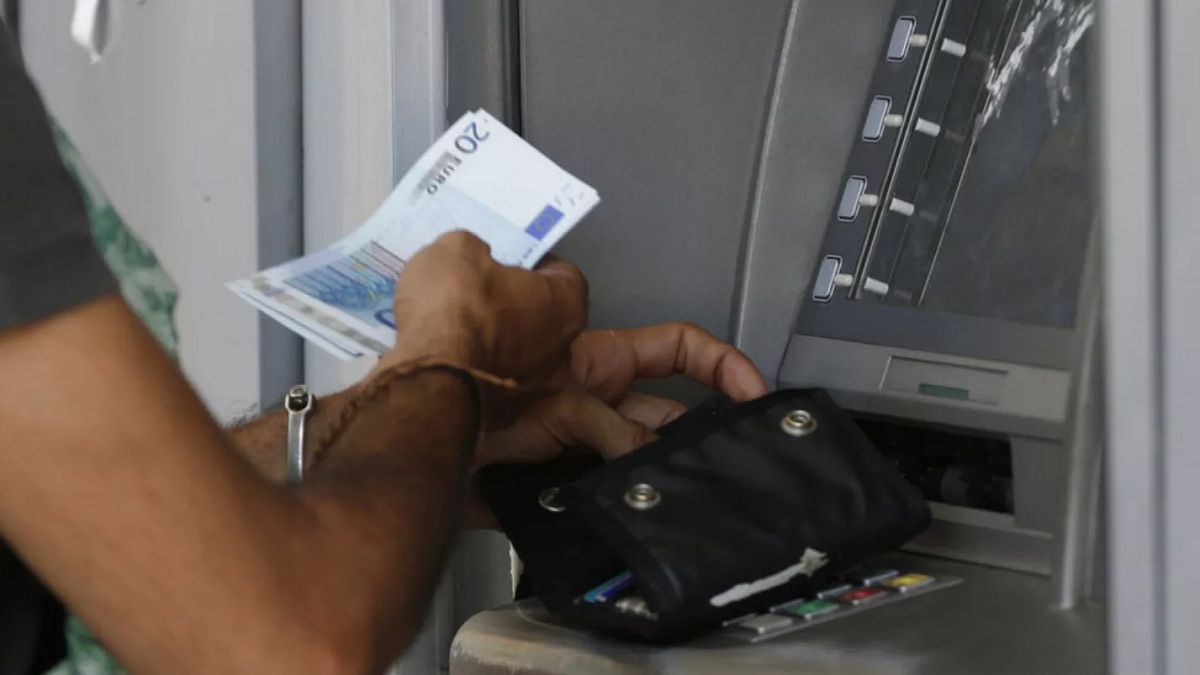
ADVERTISEMENT
Albania, Montenegro, North Macedonia and Moldova have officially joined Europe’s financial transaction ecosystem SEPA, after 40 banks across the four EU membership hopefuls were accepted into the scheme, the European Commission revealed on Thursday.
By joining SEPA — short for the Single Euro Payments Area — the four countries and the EU will have access to quicker and cheaper financial transactions, potentially saving up to €500 million for individuals and businesses, the EU executive said.
The European Payments Council made this decision after the quartet entered SEPA’s geographical scope between November 2024 and March of this year, the Commission said in a statement.
In her speech at the EU-Western Balkans Investment Forum in Tirana on Monday, European Commission President Ursula von der Leyen praised Albania’s membership in SEPA as a concrete example of financial integration with the EU.
“Since last week, companies in Albania can send money to the EU and receive money at very low costs,” von der Leyen said.
“The ambassador told me that on 6 October, a transfer from Brussels to Tirana took 3-4 days and cost €80. On 8 October, after joining SEPA, the transfer was completed in minutes and at no cost,” she pointed out.
European Commissioner for Enlargement Marta Kos said the four countries’ accession to SEPA was the culmination of “tangible results” of continued efforts to integrate candidate countries.
“Our work does not stop here. We will continue to strive for the full operationalisation of SEPA schemes for our candidate countries, bringing their citizens and businesses even closer to the EU,” Kos added.
‘Historic milestone’
In Moldova, President Maia Sandu and National Bank Governor Anca Dragu both lauded the decision in Brussels, with Dragu calling it a “historic milestone” for European integration.
“This decision means transfers to and from EU countries will be cheaper and faster,” Sandu said on Thursday, praising the efforts of the government and the national bank in bringing the process to a favourable result.
Montenegro’s Prime Minister Milojko Spajić hailed his country’s adherence to SEPA, the inclusion of 14 new flights connecting Montenegro to European cities and free roaming as a definite step forward towards EU membership.
“2026 brings new concrete benefits from the EU even before membership. We bring people closer, integrate our market into the European one, promote economic growth,” said Spajić on X.
Although it is not a member of the EU or the eurozone, Montenegro is one of two countries along with Kosovo that have unilaterally adopted the euro as its de facto currency.
For Montenegro’s Central Bank Governor Irena Radović the country’s SEPA accession was more than “cheaper transfers” but rather a belonging to the very fabric of the EU economy.
“For a Montenegrin exporter of wine or digital services, payments from EU clients that once took days and carried heavy fees now settle within hours at minimal cost,” said Radović.
“This is particularly important for the Macedonian economy, which is characterised by a high degree of trade openness and a large volume of cross-border payments,” Macedonian Finance Minister Gordana Dimitrieska-Kochoska said on Thursday, according to the domestic press.
“Therefore, the potential for cost savings, for improving liquidity and for increasing the competitiveness of companies is large.”
The EU officially granted Moldova candidate status on 22 June 2022 and Chișinău has since enshrined its people’s desire to join the bloc in its constitution.
The six countries that make up the Western Balkans submitted their EU membership requests at different times, with North Macedonia being the first, applying in 2004 and gaining candidate status in 2005.
Brussels granted Montenegro candidate status in 2010 and then Serbia in 2012. Albania became a full-fledged candidate for membership in 2014.
Bosnia and Herzegovina was granted EU candidate country status in 2022 but has not opened negotiations with Brussels, while Kosovo remains the only potential candidate for membership in the bloc.
The EU has also released funding for Albania, Montenegro and North Macedonia as part of the bloc’s financing package for the Western Balkans, the EU executive said on Thursday, a decision recognising the “significant reforms” partners have made to better align with EU standards.
A total of €99.3 million has been allocated to Albania, €18.3 million to Montenegro, and €25 million to North Macedonia under the EU’s Western Balkans 2024-2027 growth plan.
The countries that make up SEPA include all 27 EU member states, plus the UK, Iceland, Norway, Switzerland, Liechtenstein and several other non-EU countries such as Andorra, Monaco, San Marino and Vatican City.
